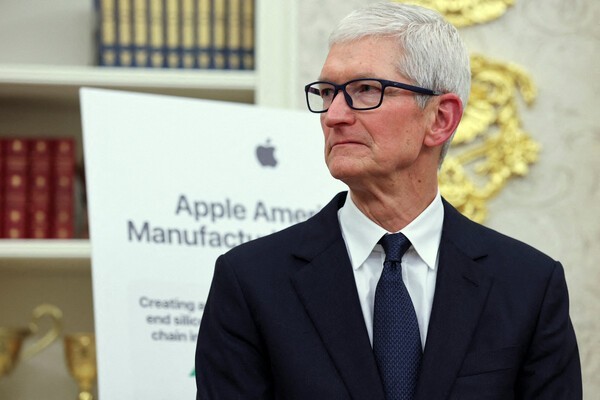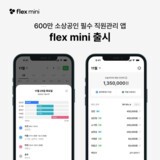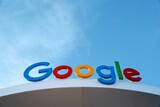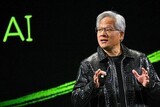As John Ternus, Apple’s Senior Vice President of Hardware Engineering, rapidly emerges as the leading candidate for the company’s next CEO, industry observers say Apple may be returning to a “hardware-engineer-led leadership model” for the first time in a decade.
This goes far beyond a simple leadership change — analysts say the shift could reshape Apple’s product strategy, AI competitiveness, and internal culture.
Following the FT’s exclusive report, KMJ conducted an in-depth analysis of the key changes and structural realignments that may unfold under a Ternus leadership era.

Return of a Hardware-Engineer CEO… A Revival of the Jobs–Ive Philosophy?
John Ternus has long been regarded as “one of Apple’s most trusted engineers.”
Since taking charge of iPhone and iPad hardware engineering in 2013, he has overseen most of Apple’s flagship product lines.
If he becomes CEO, Apple is expected to shift in several major ways:
1) A Stronger Product-First Philosophy
While the Tim Cook era excelled in supply chain, operations, and financial optimization, Ternus is known for prioritizing product, design, and user experience.
This suggests a potential revival of the UX- and hardware-driven innovation philosophy associated with the Jobs–Ive era.
2) A Shift from “Light Innovation” to “Tangible Innovation”
Over the past 3–4 years, Apple has been criticized for a lack of breakthroughs in emerging product segments such as AI and XR.
If Ternus takes over, observers believe Apple may introduce entirely new hardware categories, such as:
▲Dedicated AI devices ▲A fully commercialized follow-up to Vision Pro ▲New platforms beyond the iPhone (modular devices, new wearables, etc.)
Under Ternus, hardware competitiveness could once again become the core of Apple’s strategy.

The Biggest Challenge in the AI Era
The most immediate battlefield for a Ternus-led Apple would be the accelerating AI race.
1) Google and Samsung Are Already Establishing AI Device Standards
In 2024–2025, the global smartphone market solidified around “AI-first phones.”
Google has integrated Gemini into its entire device ecosystem.
Samsung has pushed forward aggressively with Galaxy AI.
2) Apple Joined the Race Late
Although Apple announced its on-device AI platform “Apple Intelligence,” actual user-facing impact has so far been limited. Siri, in particular, remains largely unimproved.
Thus, Ternus’ first major initiatives would likely include:
Developing next-generation silicon optimized for AI (M5, A20-class chips)
Strengthening chip-supply cooperation with TSMC
Accelerating “device-optimized AI” features
Expanding Apple Intelligence globally
Some analysts note the irony — and the strategy — in appointing a hardware engineer as CEO during the AI era.
In AI, victory ultimately depends on chips, sensors, power efficiency, and on-device compute performance.
Organizational Changes: From Operations-Driven to Engineering-Driven
During Tim Cook’s tenure, Apple’s revenue grew tenfold, becoming the world’s most efficient supply-chain-driven company — a testament to Cook’s management strengths.
But with CFO Luca Maestri and COO Jeff Williams stepping down this year, Apple’s internal center of gravity is already shifting toward engineering and product development.
Under a Ternus regime, several changes are expected:
Major increases in AI and chip-development budgets
Renewed influence of design and engineering divisions
Delegation of global operations and supply chain to VP-level leaders
Accelerated product-development timelines
Greater emphasis on XR and wearables leadership
Although the Apple Car project was officially canceled, Apple still retains specialists in autonomy and sensor technology — a reorganization that could favor a hardware-engineer CEO.
Why the Leadership Transition Is Accelerating Now
According to the FT, the CEO transition is part of a long-term plan, not an abrupt decision.
But industry insiders expect the timeline to move forward because 2025 has been one of Apple’s most difficult years:
▲Loss of AI leadership ▲Declining market share in China ▲Weak sales of Vision Pro ▲Slowing iPhone growth ▲Increasing regulatory pressure from the U.S. and EU
In this context, a CEO transition could serve as a signal of strategic overhaul.
Additionally, with Apple’s top finance and operations chiefs stepping down, the internal succession structure appears to have already shifted toward a “Ternus-centered” framework.
When Will the Announcement Be Made?
The most likely scenario discussed by industry watchers is:
Early 2026 (January–March): Official succession announcement
WWDC 2026 (June): The new CEO’s first major public debut
The FT also reported that a January 2026 announcement prior to Apple’s earnings call is unlikely, as the new leadership would need sufficient preparation time.
Will Apple Return to a Product-Centric Company After Tim Cook?
Tim Cook is considered one of the most successful CEOs in Silicon Valley history, having transformed Apple through operational, financial, and supply-chain excellence.
But if Ternus takes the helm, Apple may shift back toward a product- and hardware-driven identity.
How Apple will fight back in the AI era — and what strategies a hardware-engineer CEO will employ — will shape Apple’s new chapter in 2026 and beyond.
by Ju-baek Shinㅣjbshin@kmjournal.net
- The ‘243g Beast’? iPhone 18 Pro Max Poised to Become the Heaviest iPhone Ever
- Apple Delays Launch of ‘iPhone Air’ Successor Amid Sluggish Sales
- Samsung Galaxy S26 Ultra: Why the Punch Hole Got Bigger...A Deep Dive into Samsung’s New Strategy
- “Thin but Pricey”...iPhone Air Fizzles Out with Just 3% Market Share, Faces Discontinuation
- Apple’s M5 Chip Ushers in the Era of On-Device AI
- Samsung’s XR Headset “Moohan” to Debut on October 22 - Premium Specs at Around 2 Million KRW
- Why Kakao Has Become Korea’s “Ugly Duckling”
- Transparent iPhone Rumors Surge Again as Apple’s “All-Glass” Patent Raises Bezel-Free iPhone Expectations
- Google Phones Can Now Use AirDrop. The Wall Between Android and iPhone Is Finally Cracking

![[동학] 카카오톡 친구탭, 결국 12월 롤백… “격자형 피드는 선택 옵션으로”](https://cdn.kmjournal.net/news/thumbnail/custom/20251126/5517_10550_1119_1763853080_120.jpg)


![[테크 칼럼] 제미나이3, GPT-5.1을 넘다…AI는 이제 ‘일을 대신하는 시대’로 간다](https://cdn.kmjournal.net/news/thumbnail/custom/20251126/5457_10454_4847_1763621329_120.jpg)



![[낭만 테크 시대] AI 대항해 시대](https://cdn.kmjournal.net/news/thumbnail/custom/20251126/5603_10714_4334_1764121414_160.jpg)

